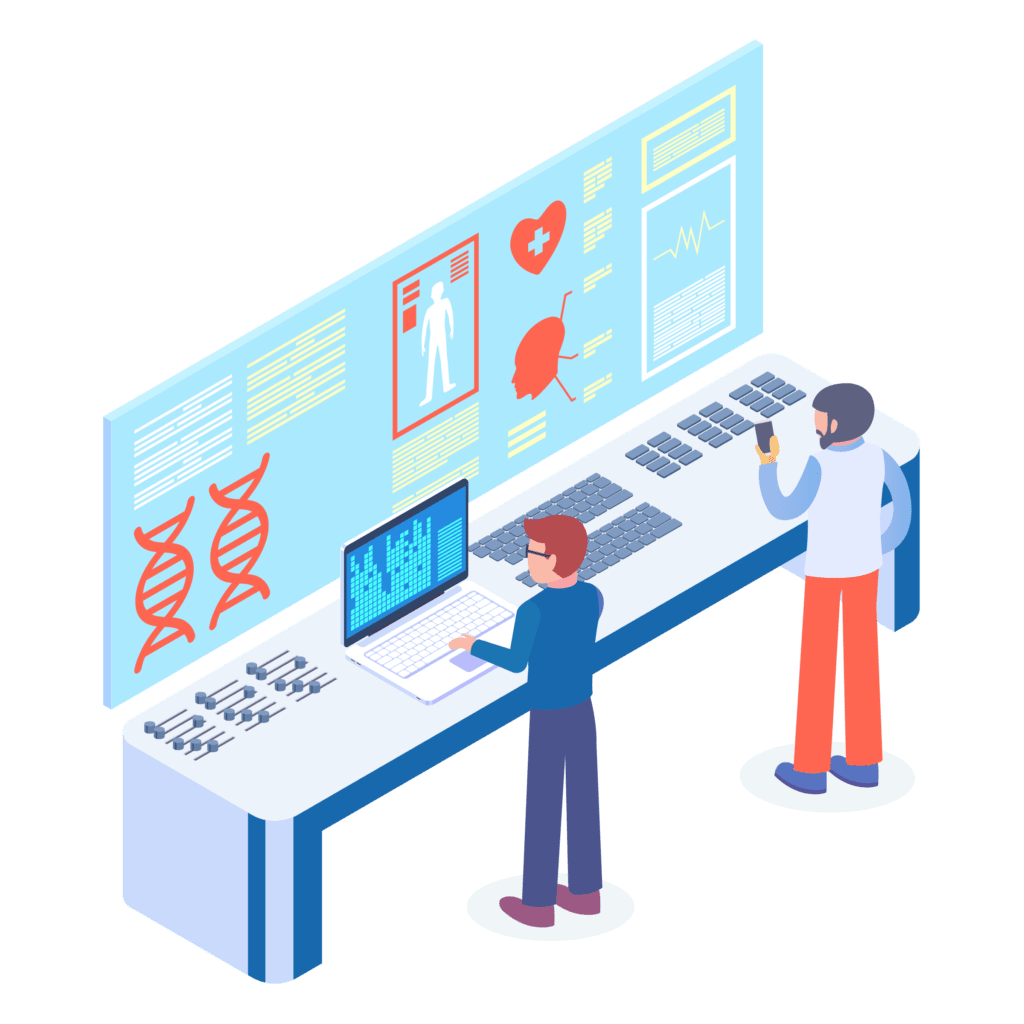
Key Takeaways:
- Health informatics combines healthcare and computer science, improving how medical facilities use data.
- Careers vary from health information technicians earning about $62,990 to clinical informatics managers making around $110,680 annually.
- Education paths include bachelor’s degrees in health-related fields and certifications in health informatics.
- The field offers diverse job roles like informatics nurse, health informatics specialist, and clinical analyst.
Maybe you have spent some time as a nurse and are feeling a little burnt out by the constant demands from patients and the general fatigue that comes your way from being in a helping position for too long. You might be wondering if there is a way to change things up a bit without completely tossing out your current skills and knowledge.
Or…
Maybe you haven’t quite found your footing in your current career and are looking for ways to use your technical skills in a sector that is growing and has a lot of job stability. Perhaps you love problem-solving and feel passionate about healthcare.
These are just two common scenarios that get people interested in a career in healthcare informatics. The fact is there is a ton that you can do with a degree in healthcare and the opportunities to grow in this career are exponential. You are not alone in your quest for something different and better. It is human nature to seek out and explore. If you are considering a career move to health informatics or are simply looking to initiate a career in a stable industry like health care then you will want to read on.
This versatile interdisciplinary field has a lot going for it and chances are there’s something in here for you too.
What Is Health Informatics?
Health Informatics has many names including Health Care Informatics, Clinical Informatics, and Nursing Informatics just to name a few. This is an interdisciplinary field that combines computer science with management science to help medical facilities effectively acquire store and retrieve health care information. The field has changed rapidly over the years with the increase of IT in the medical industry. It uses health information technology (HIT) to which is has been the catalyst for positive change in the field of healthcare. According to Paul Shekelle et al, HIT will improve healthcare quality, increase efficiency, prevent errors and increase accuracy, reduce costs, increase efficiencies for administrators, decrease paperwork and “idle work time”, extend real-time communications among health care professionals, and expand access to affordable health care.
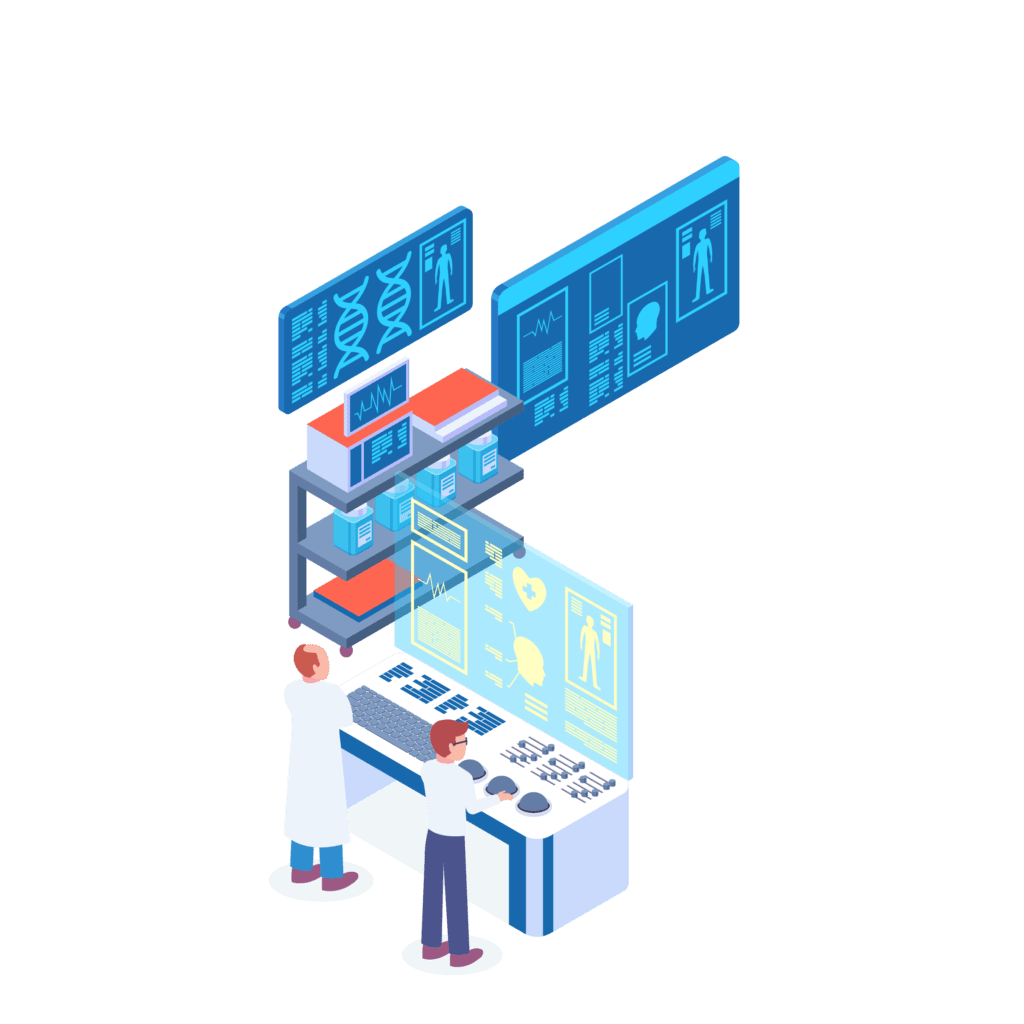
Areas Impacted by Health Informatics
- Nursing
- Clinical medicine
- Dentistry
- Public health
- Pharmacy
- Physical therapy
- Occupational therapy
- Behavioral therapy
- Alternative medicine
- Biomedical research
What Is the Expected Salary?
Health Information Technician
According to the Bureau of Labor Statistics, the expected salary of a health information technician was $62,990 per year. Factors that influence pay include location, experience, and areas of specialization.
Informatics Nurse
Nurses who become informatics nurses are generally more specialized and may have an advanced degree. According to Payscale informatics nurses made a salary that ranged (depending on their degree) between $66,000 and $89,000 per year.
Health Informatics Specialist
The health informatics specialist made an average salary of $86,306 annually according to Ziprecruiter.
Clinical Analyst
A clinical analyst, according to Payscale makes an average salary of $76,386 annually.
Clinical Informatics Manager
Clinical Informations managers are some of the best-paid professionals in health informatics and for good reason, they often have advanced degrees and can bring in an average salary of $110,680 annually.
How Do I Become A Health Informatics Specialist?
If you are interested in becoming a health informatics specialist the first step is education. A common route is to obtain a bachelor’s degree in a health-related field like nursing and then to obtain a master’s in health administration or health information. It is also possible to obtain a bachelor’s degree in health informatics or if you are already a health care professional, then you can obtain a certification in health care informatics.
Common Health Informatics Degrees
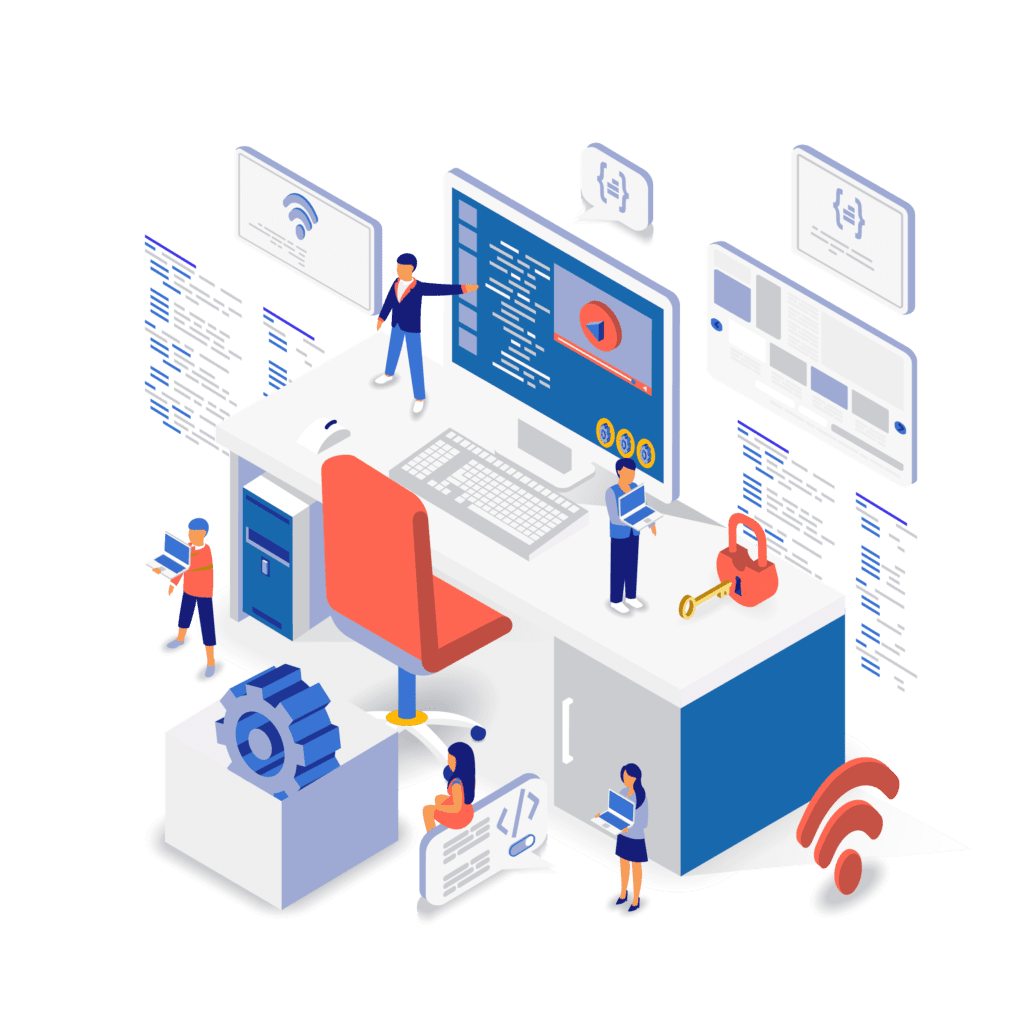
- BA in Health and Human Services Health Care Informatics Systems
- BS in Health Information Management
- BSN to MSN in Nursing Informatics
- MS in Management Health Care Management
- MBA in Health Care Management
- BS in Health Sciences Professional Development and Advanced Patient Care
- BBA in Health Services Administration
Next check to see if your state requires certification. The American Health Information Management Association offers a common certification in health informatics.
Once certified you will be ready to apply for jobs in the field. Doing a quick search online in advance may help you to gauge which jobs are readily available in your area. Doing this ahead of certification is wise especially if you are able to find an entry-level position quickly with a certification or a bachelor’s degree.
If you are ready to advance through the field then it may be time to go back to school for a master’s in health informatics or a bachelor’s if you have not already done so.
Job Interview Tips for Health Informatics
- Research the job ahead of time. Know the industry
- Know your selling points so when you’re in an interview you can readily explain why you are the best candidate for the job.
- Have Questions Ready-to-Go for the Interviewer
- Anticipate their Concerns
- Be Positive
- Be Clear and Concise but Also Assertive
What Does a Health Informatics Professional Do?
Health information technicians are in charge of organizing information in the health care industry. Typically professionals will use a database with a coding system that helps to classify information. This information is then maintained securely.
The purpose of these jobs is to record patient data and patient medical histories in a safe and organized place and to have information available for billing reimbursement through health insurance companies.
Health informatics professionals will likely need to update health information data, record data, check data for accuracy and correct information. Data analysts may need to analyze data and provide additional input.
As a specialist you will need to use classification software to ensure that patient history is coded correctly to bill insurance companies. Additionally, you will need to be able to track medical outcomes to ensure quality of care.
This person may need to work in tandem with a nurse or clinical nursing leader to ensure that information is accurate and complete. Therefore an informatics specialist will have a good relationship with other individuals in the workplace.
What Does a Day In the Life of a Health Informatics Professional Look Like?

As a health informatics professional you are going to work in a health care setting. These settings typically require shift employees and may require some evenings, weekends and holidays for the health informatics professional.
As an IT professional, health informatics specialists work “behind the scenes” at a hospital and may work in labs. They often provide technical support to staff members as well as monitor the hospital’s network and database. Some of the positions are management positions so you may find yourself in a private office for supervisor roles.
You should expect to work among medical staff but will not be required to provide direct patient care. You will often work alongside other IT professionals to improve the computer systems in the medical centers.
You will likely have to analyze data from computers in various departments in the facility and provide answers to patient health using data-driven solutions.
There may be a teaching component to this job as you communicate IT requirements to other professionals.
This tech-centric job obviously means spending a large portion of your day sitting at a computer or other device. Though you also have the freedom to dodge a number of the stressors often found working in hospitals and other medical settings.
Hard Skills
- Development
- Medical record keeping
- SQL
- EMR
- Clinical Information systems
- Health information
- Managing medical imaging
- Research
- Quality assurance
Profile of a Person
The person who is a great fit for health informatics is someone who is technically savvy and willing to continually learn. This field changes its technologies regularly and it is always good to stay on top of the latest in technological advances. As this person is in charge of making sure that medical information is up-to-date and accurate, this person should aim to pay close attention to detail. As the job is on a computer the right candidate will be comfortable working from a computer for lengthy periods of time.
Additionally, you will need to communicate effectively with nurses and other members of staff so having medical knowledge along with great communication skills is an absolute must. There is a component of this job that likely requires some explanation of technology to others. The good news is that you can make a positive impact on the lives of people seeking out health resources without having to interact with patients.
Am I a Good Fit for Health Informatics?

The health informatics career is an excellent career choice. The work conditions though they may require evenings and weekends are generally lower in stress than other jobs in health care. The pay is very fair with plenty of room to increase and the job outlook is excellent.
However, not everyone is going to be a great fit with this career. Let’s take a look at a few factors to consider when determining whether or not you are a fit.
Health Informatics is very mixed. For some professionals every day is different and you may have to react in-the-moment. Others will be working on the same project for months if not years at a time. These are big differences! Meaning regardless you have to be flexible. If you struggle to be flexible then this may not be a great fit. However, people who are adaptable to a variety of challenges may be a great fit for this job. If you have a strong preference for one or the other that does not necessarily make you a bad fit for health informatics just perhaps a specific type of work style. We recommend you take some time to research the job before accepting the position. There may be a good match out there.
This field also includes leadership positions within the field. This quality requires a general knowledge of how the HIT works along with the ability to effectively communicate with a team. If you like taking charge certainly consider this when going back to school. A master’s degree might be the best fit for you. Individuals in this role will enjoy delegating, communicating, and planning.
Nursing informatics is an interdisciplinary job that requires knowledge and skills in nursing as well as programming. The individuals who have these jobs typically had a previous career in nursing and head back to school looking for something else. If you are a nurse ready to change careers then this could be a great fit for you. It is important to note that this job does not deal directly with patient care. So, if you love working with patients then this may not be the right career move for you. Many people find that an increase in salary and a change of pace make the switch from nurse to nurse informatics an excellent choice.
What Are Some Jobs Related to Health Informatics?
Pharmacy or Nutrition Informaticist
An informatics pharmacist is a high paying job that deals with medication, dosage, automation of medications and medication use. This field aims to streamline patient care and outcomes with a focus on increasing the efficiency of treatment and the administration of medication.
Clinical Informaticist
This is a common job that can be applied to a number of settings. This individual may be responsible for managing patient data, organizing health data, sharing data with patients and health care providers. The clinical informaticist will also need to be able to update the clinic’s technology.
Informatics Analyst
This person studies the data and makes informed decisions based on that data. This person will need to design solutions for the clinic and must, therefore, be a good problem solver.
Informatics Manager
The informatics manager is responsible for ensuring that all of the systems are working. This person will have to do a high level of problem-solving on a day to day basis. This person oversees data and will often be in a position to delegate tasks to the entire hospital staff. A supervisor does a similar job but for an entire organization.
Which Degrees Do I Need to Become a Health Informatics Professional?

In many cases a bachelor’s degree is enough to get your foot in the door with health informatics. Some entry-level positions will even be okay with an associate’s degree.
If you want to advance in your career it may be a good option to go back to school for a master’s degree. Many times this professional has the ability to double their salary with a master’s in health informatics meaning that an online master’s in health informatics can make a long-term impact on your career.
Which Certifications are Required for a Career in Health Informatics?
American Health Information Management Association (AHIMA) offers certification for Registered Health Information Administrators(RHIA). An RHIA manages and participates in administrative duties as well as prepares budgets. This person is an expert at HIT and managing patient health information.
To become eligible for this certification you must have either completed a bachelor’s or master’s degree in health information management (HIM). These are the topics covered during the certification:CodingPrivacy and SecurityData AnalyticsClinical Documentation Improvement
Privacy is essential when it comes to healthcare and healthcare informatics. The RHIA is responsible for understanding the standards related to patient privacy.
Can I study Health Informatics Online
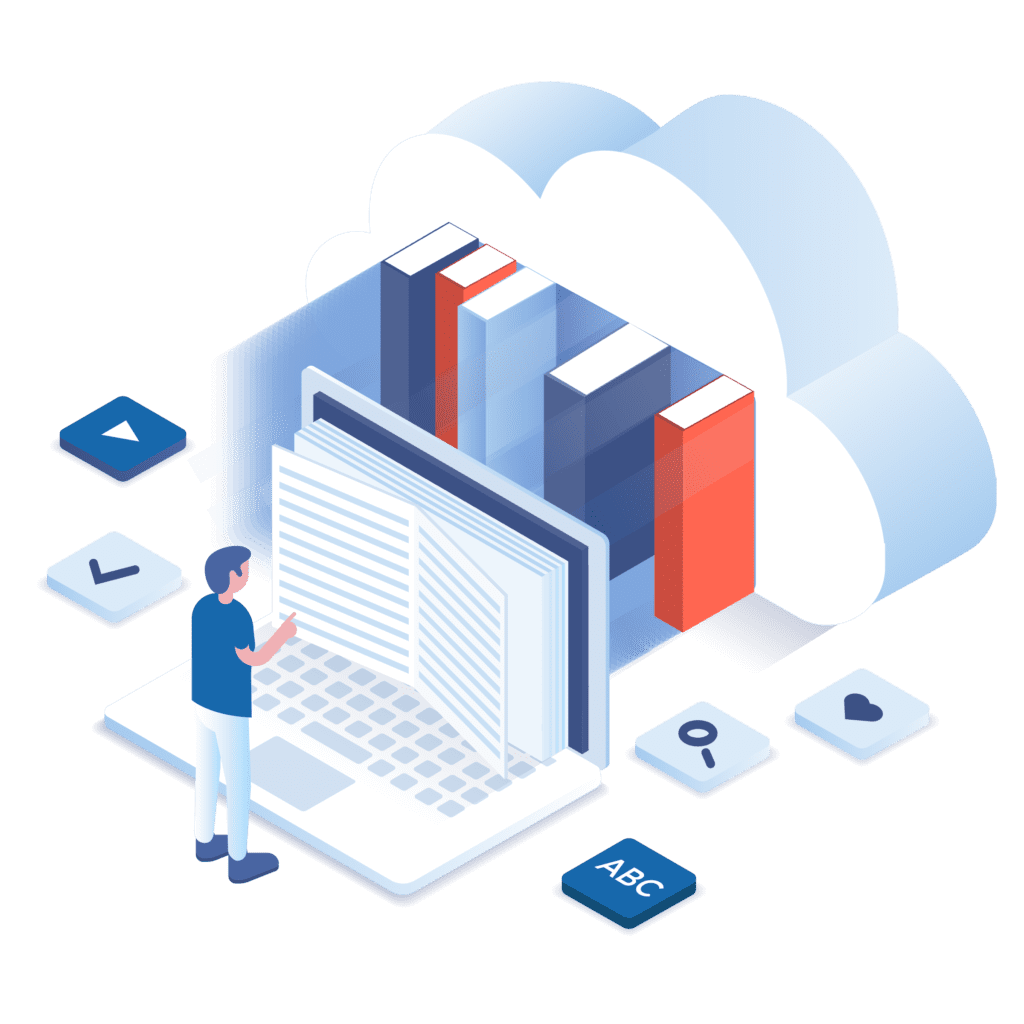
Health Informatics is a great degree to do online. In fact, this is an extremely popular program for any health care professional who is looking to switch up their career. As most people looking to head into health informatics are already working professionals it only makes sense that these individuals would love to study online. Still studying online may have a few drawbacks so it is best to consider those before taking the plunge. Here’s a glance at the pros and cons of studying online.
Pros of Online Degree
- Flexible scheduling and work environment for most programs
- In many cases this option is more affordable as it fits into your work life
- Easy to Access Program from Anywhere
Cons of Online Degree
- Not Always the Same Academically Online As In person
- Not a ton of social interaction
- less time spent with your professor than an in-person course
What Will I Study in a Health Informatics Degree?
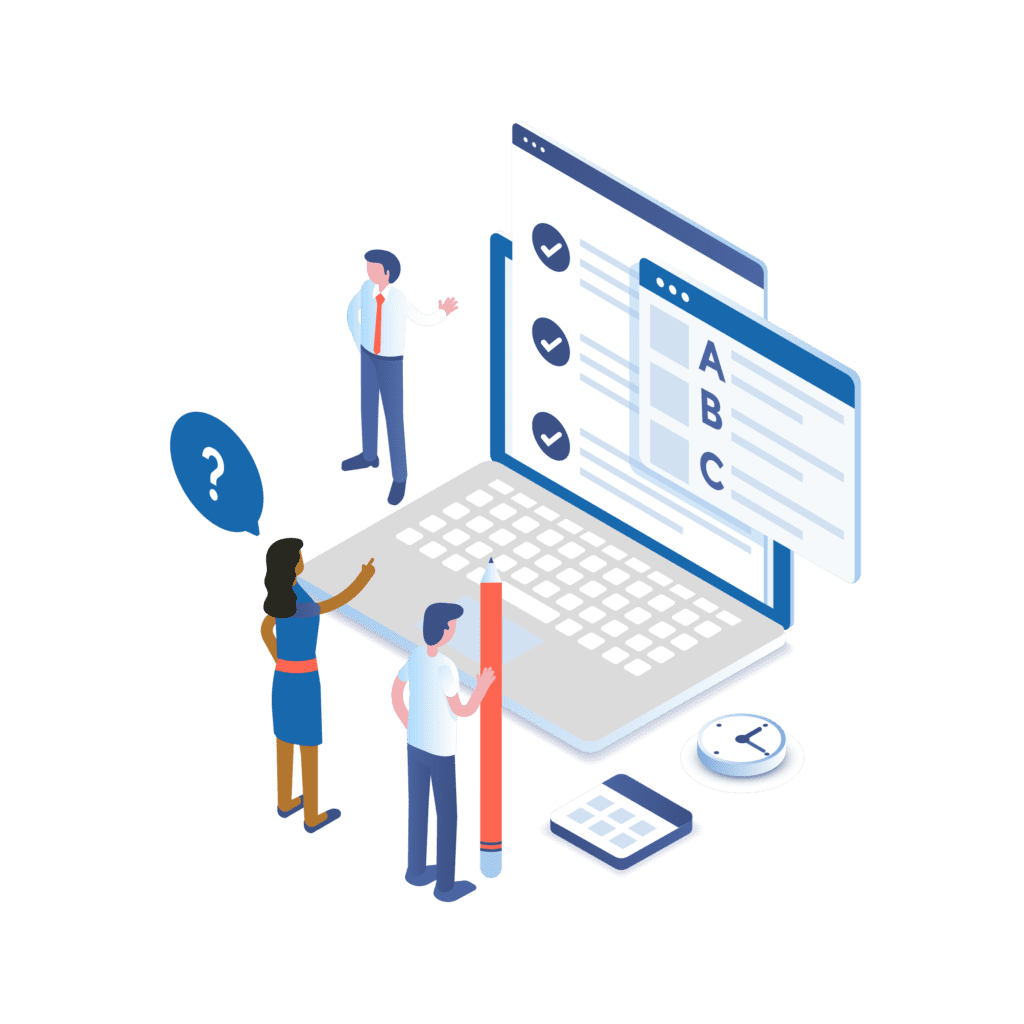
A Master of Science in Health Informatics is a very popular degree. But maybe you’re not really sure that you want to head back in to pursue further studies in this field. It’s normal to want to investigate something as serious as a degree before taking the plunge. Let’s take a look at some of the core courses you might take when studying health informatics.
- American Health Care System- key components for healthcare in the United States
- Introducation to Health Informatics- fundamental to health technology
- Health Analytics Leadership- learn to effectively communciate with your team and how to manage projects
- Legal, Ethical and Social Issues- all issues that may come up on the job
The specialization in clinical information includes these courses among others:
- Data Science
- Big Data Management
- Biostatistics
- Information System Acquisition and Lifecycle
- HIT Standards
- Global Health Systems
- Project Management
- Techniques of Analytics
As you can see an online degree in health informatics is a necessary step towards landing a job in the field. If you are considering pursuing a career in health informatics consider starting your degree today. These programs typically require that you complete 12 courses and will take about two years to complete.
Let’s recap what we have talked about so far:[graphic 8]
Health Informatics Highlights
- Health Informatics is Multidisciplinary
- You Can Enter This Field with a Bachelor’s or Master’s Degree
- The Job Is Diverse
- You Can Work as a Supervisor
- Nurse Informatics is A Popular Job
- There Is Room For Growth
- BLS says job growth expectancies far far above national average
- Tech People Should Apply
- You Do Not Interact With Patients
Sources:
Related:
- 15 Best Master’s in Nursing and Healthcare Informatics
- 25 Online Master’s in Nursing and Healthcare Informatics
- 10 Most Affordable Online Master’s in Nursing and Healthcare Informatics
- What Can You Do with a Human Service Degree?
- What are the Best Master of Health Science Jobs?
- 10 Fastest Online Master’s in Nursing and Healthcare Informatics
- Top 10 Best Colleges for a Bachelor’s Degree in Health Informatics
- What Can I Do with a Master’s in Health Informatics?
- What is Health Informatics?
- Healthcare Informatics Jobs